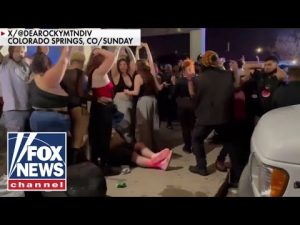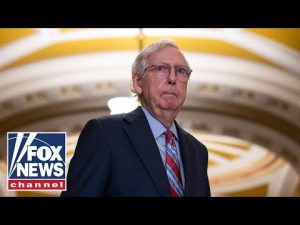**Unmasking Allegiance: The Case of a Hamas Supporter in America**
In a time when national security is paramount, a recent case has surfaced that raises significant concerns about who we allow into our country. A man named Khalil, who is now a green card holder, allegedly misled officials on his student visa application and has connections to Hamas, the notorious group known for its terrorism against civilians. This revelation has sparked outrage among many, particularly those who believe in maintaining the integrity of American values and national security.
Khalil’s case is not just about his status as a green card holder; it carries the weight of a much larger conversation about immigration amid rising tensions worldwide. Reports indicate that Khalil has been involved in activities that appear to support the overthrow of Western civilization, including dialogues with the Iranian regime. Such connections bring to light a chilling reality: when we import individuals like Khalil, we must be vigilant about their intentions and affiliations.
Media outlets, particularly those leaning to the left, seem to gloss over the gravity of this situation. They argue that deporting Khalil is an infringement on the First Amendment rights he supposedly enjoys. However, this isn’t a case of free speech being stifled; it is about national safety. This individual is not just expressing opinions—he is allegedly conspiring with groups that threaten American lives. For many, there seems to be a disconcerting overlap between what the media portrays and the stark reality facing ordinary citizens who seek peaceful lives.
Moreover, the insistence that Khalil should be regarded as a victim highlights a broader issue within parts of the media. Should a person connected to terrorism be pitied? Should sympathies be thrown at anyone who identifies as a “dissenter” against the U.S. government? The answers lie firmly in the negative for those who value the safety and security of the nation above all else. If someone is actively working against the principles and existence of the very country that offered them refuge, their actions should not be shielded by a veil of constitutional rights.
Ordinary American citizens abide by laws and respect the democracy that allows for dissenting views. They do not congregate on college campuses to incite violence or plot against the state. It is disheartening when individuals such as Khalil take advantage of the freedoms offered here while simultaneously pushing an agenda that would dismantle those very freedoms. The political climate has created a space where the lines between lawful protest and advocacy for terrorism seem worryingly blurred, and it is crucial for everyone to discern the two.
Khalil’s case is unfortunate, but it serves as a wake-up call. Immigration policies must be scrutinized with the utmost diligence, ensuring that any individual with a questionable past or affiliations does not slip through the cracks. The safety of the American people should always come first, and any effort to protect these freedoms should be met with support rather than derision. It is time that we prioritize our national security and reject those who attempt to undermine it. Only then can we ensure that America remains a beacon of hope and safety for all who genuinely seek solace on its shores.







